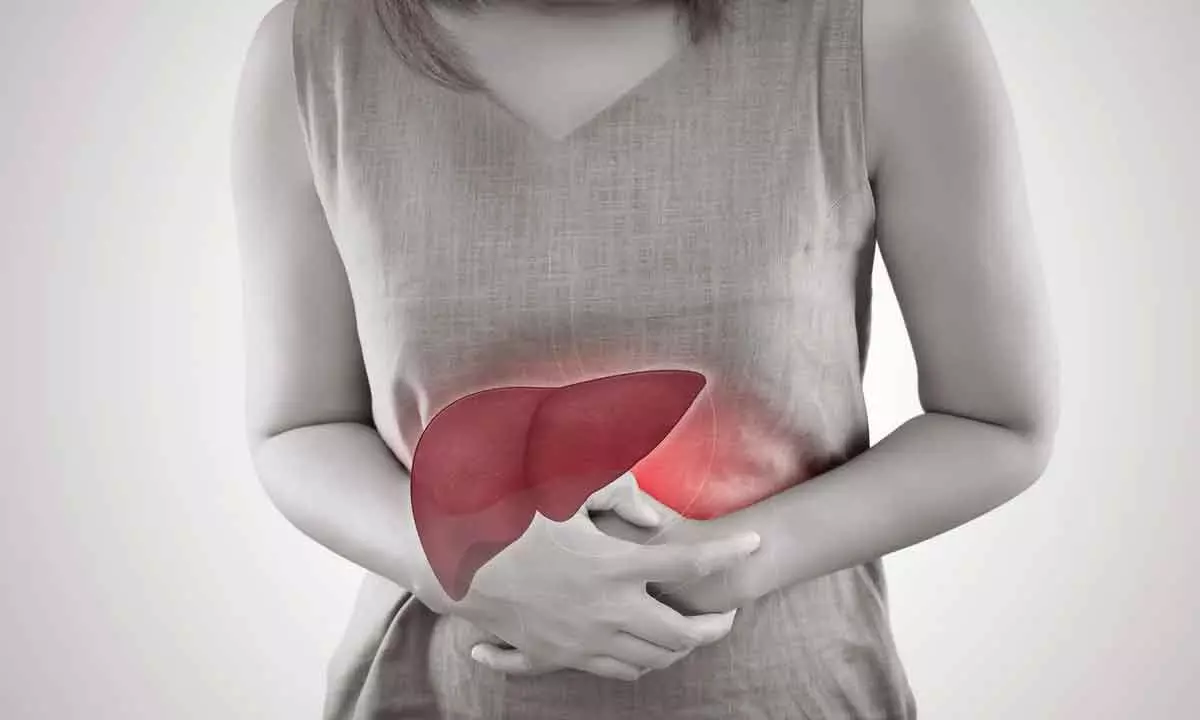Live
- Farmers decry collection of excess paddy by millers
- MyVoice: Views of our readers 29th Dec 2024
- Time to adopt new lifestyle resolutions
- An appeal to TTD
- GM carries out inspection at key railway facilities
- Congress turning a pariah in oppn bloc
- Dr Singh’s integrity & services unparalleled
- Staying single in life can have economic, medical disadvantages
- Nimrat Kaur bookmarks chapters from 2024 as she gears up to welcome New Year
- Simple tips on how to select your bridal lehenga
Just In
Liver vital for survival, says expert


Liver helps fight infections and cleans blood and also helps digest food, stores a form of sugar for energy for the body.
Liver helps fight infections and cleans blood and also helps digest food, stores a form of sugar for energy for the body. Liver is the largest organ and given its important role, normal life is not possible once its function is impaired and survival is very limited when it is diseased, says Dr Tom Cherian, liver transplant surgeon at Manipal Hospital.
He informed 'The Hans India' on the eve of the World Liver Day here on Monday that a liver transplant is an operation to remove a diseased or damaged liver from the body and replace it with a healthy one.
Liver transplantation has about a 90 percent one-year survival rate and thousands of people are benefiting from this remarkable surgery worldwide every year. But because liver transplants are expensive, technically difficult, have significant risks and require a long recovery period he recommended them only as a last resort. It is recommended when the liver has been damaged to the point that it cannot recover nor perform its normal functions (cirrhosis) and is likely to fail. Once cirrhosis reaches a certain level, the damage is irreversible, and the liver gradually loses all of its functions. This is known as end-stage liver disease.
In 2011-12, a total of 726 liver transplants were carried out in the UK and over 5000 in the USA. One of the biggest risks is that the body will reject the new organ.
To prevent this from happening, one has to take medication to suppress the immune system for the rest of his/her life.
However, the number of people who need a liver transplant is much higher than the number of livers donated. In India where about 1700 liver transplants are done currently, it is estimated that about 29,000 transplants are actually required. The most effective way that people can reduce the number of deaths from liver disease is to join the Organ Donor Register.
The liver can become damaged as a result of illness, infection or alcohol. So, people with these conditions when and if they reach the stage called end-stage liver disease, will require a liver transplant. Some but not all of the causes for such damage are Chronic Viral Hepatitis, B, C, D, Autoimmune Hepatitis, Alcoholic Cirrhosis, Nonalcoholic Fatty Liver Disease (NAFLD), Cryptogenic Cirrhosis, Biliary atresia, Primary Sclerosing Cholangitis (PSC), Acute Liver Failure, Hepatic Tumors.

© 2024 Hyderabad Media House Limited/The Hans India. All rights reserved. Powered by hocalwire.com






